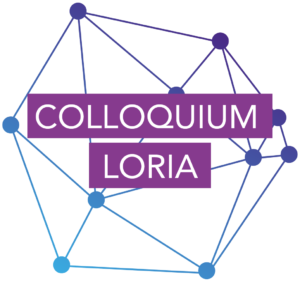Welcome to Chloé BRAUD

Recently recruited as a researcher at the CNRS, Chloé Braud joined the Loria’s Synalp team on 1st October 2017. Focus on this research scientist who has managed to combine mathematics and the arts during her career history.
From a maths class which prepares students for the Grandes Écoles entrance exams to linguistics
A native of Narbonne, she started her higher education by one year of preparatory class in “Maths, physics and engineering sciences”, but she gave up to join the ranks of a second year of DEUG (Diploma of Higher Education) in French Language and Literature and then a Bachelor’s degree specialized in French as a foreign language at the Sorbonne University. She took there for the first time a linguistics course that turned out to be decisive in her career since she moved towards a Master’s degree in computer linguistics research at University Paris 7. Then she obtained funding for her PhD thesis from the Ministry and she joined the Alpage team (large-scale deep linguistic processing) along with Pascal Denis, the current head of the MAGNET team at Inria Lille and Laurence Danlos, Professor of computer linguistics at Paris 7. She obtained her PhD degree in 2015.
After a tutorial led by Anders Søgaard, she successfully applied for a postdoctoral position in Copenhagen to work with his team on semi-supervised learning within the framework of ERC Lowlands. She spent nearly two years there before joining the Loria. “The quality of work in Denmark is exceptional, there is a lot of discussion and the atmosphere is very friendly.”
Identifying the semantic relations using semi-supervised learning
Within the Synalp team, Chloé is currently working on automatic text analysis, particularly by using methods of semi-supervised learning or by transfer which aim to use unannotated data with annotated data, the latter being actually less numerous because they are expensive to obtain. The aim is to define strategies that enable both types of data to be mixed. “What is interesting in learning is to see what you do when you run out of data”, says Chloé. Even if the figures change, annotated data are still lacking. “The first corpus contained 385 annotated documents, while now, it approaches 2000” adds Chloé. For discursive analysis, several corpus exist in various languages. So Chloé proposed to adapt a model based on English to other languages like Basque which is a less available language.
Her research work concerns discursive analysis, that is to say the semantic links between sentences, especially when these links are implicit. Thus, while it is easy for a human being to recognize a causal link in the sentence “Paul fell down. Mary pushed him” even without a connector such as “because”, it is a very difficult task for a machine.
Last June, Chloé co-organized the first workshop for women and underrepresented groups in natural language processing co-located with ACL in Vancouver.
By the end of the year, she is going to realize her best project, being a mother.
Learn more about Chloé Braud


